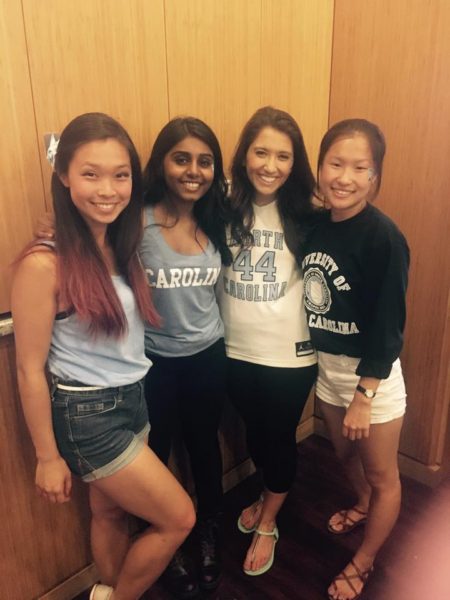When you were a child, what was your response to this question: “What do you want to be when you grow up?”
Describe your research in five words.
“Understanding why brains develop differently.”
A cardiothoracic surgeon. As the daughter of two doctors, I naturally wanted to be like my parents when I grew up, parents who always took advantage of the fact that I was not squeamish about blood to show me videos of “cool” surgeries. My mom would be overjoyed whenever I approached her with questions on my biology homework. I think much of the reason I gravitated towards STEM was because my parents made me feel like I could belong to and excel in any field.
Share the pivotal moment that helped you choose research as a career path.
I recently assisted my postdoc with brain section staining and imaging in mice. It was the first time I helped with such a late stage of a study, and I was immediately taken aback by the detailed information we were able to gather about individual neurons in a mouse brain. It made me realize that every minute task or experiment I run in the lab culminates into a tangible piece of evidence that can be analyzed and used for further research. To be honest, I’m not entirely sure what my career path is at this moment, but I’m deeply humbled by the capabilities of research.
What’s an interesting thing that’s happened during your research?
Fortunately, I have not caused any crazy accidents since I started working at my current research lab, but I do distinctly remember one day that I could not stop breaking things. It started in the cell culture hood, where a jerky motion toppled the glass pipette jar that broke into a million pieces. Then I pulled up too fast with my electronic pipette, which flushed the filter and rendered it unusable. My postdoc was super understanding about all this and let me take a break from cell culture to do some lab chores — which happened to be stuffing glass pipettes into autoclaved containers. As you can probably guess, I dropped and broke a few pipettes within just a few minutes. My postdoc showed up laughing with a broom and dustpan, without even having to see what happened. Two main takeaways from this day: Stop while you’re ahead when it involves glassware, and humor is the best way to deal with lab clumsiness.

Bongu (second from left) and friends cheer on the Carolina basketball team at the Top of the Hill Restaurant watch party last year.
In honor of Women’s History Month, share an anecdote that shows why women need to continue breaking barriers.
As an economics major taking higher level classes, I’ve often been one of only a handful of women in the classroom. Talking to female faculty about this issue shed some important light: Women in classes like Econ 101 who, on average, did better than men still did not feel confident enough to pursue the major. Motivated by this realization, my classmate, Mijal Bucay, and I started the Women in Economics initiative with the help of the department. This was a series of events we held to encourage underclasswomen with potential interest in economics, helping them network with a support system of peers and faculty in the major and realize the opportunities available to them through this channel. Our efforts are ongoing and we hope to grow the initiative into a student organization before we graduate.
What advice would you give to up-and-coming female researchers in your field?
As someone who’s still in the process of “figuring it out,” the only advice I can give is to trust your intuition. A diverse academic background gives you an advantage in pursuing opportunities outside your comfort zone. This is one of the few times in your life you will be able to pursue multiple interests. If there’s an opportunity that is totally left-field but happens to be something you’re interested in, apply without hesitation!


